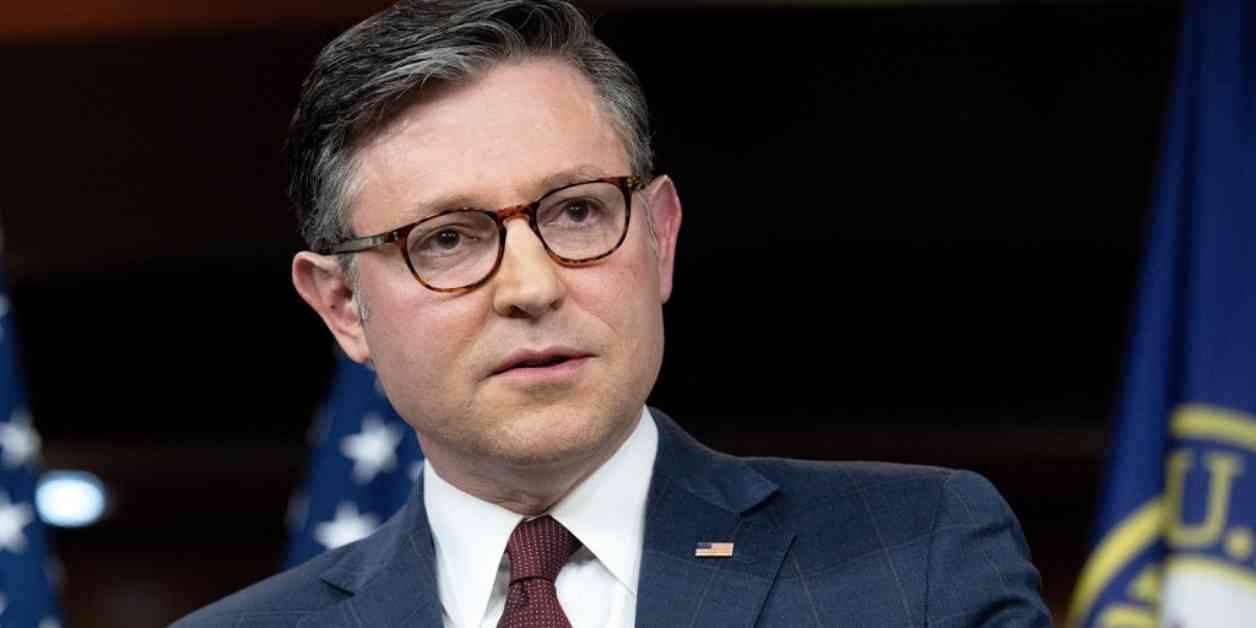House Speaker Mike Johnson, R-La., has introduced a short-term funding bill to prevent a government shutdown at the end of next week and maintain operations until the end of September. The bill is set for a vote early next week, likely on Tuesday, to ensure funding before it runs out late Friday night. It marks a crucial test for the new Republican majority, requiring bipartisan support to become law, as it has not been negotiated with Democrats.
President Donald Trump has expressed support for Johnson’s bill, promising to sign it to avert a shutdown just two months into his term. In a Truth Social post, Trump urged all Republicans to vote “YES” next week, emphasizing the need to maintain financial stability until September. The bill, known as a continuing resolution (CR), includes a boost in defense spending while reducing non-defense discretionary spending without earmarks or additional emergency funding.
The release of the funding bill drew immediate criticism from Rep. Rosa DeLauro, D-Conn., who condemned it as a power grab benefiting the White House, Elon Musk, and President Trump at the expense of the American people. House Democrats have voiced opposition to the legislation, warning of potential cuts to essential services like health care, nutritional assistance, and veterans benefits. The divide between the parties heightens the risk of a government shutdown, with uncertainties about the bill’s passage in both chambers.
Challenges and Criticisms
House Democratic leaders have raised concerns about the impact of the funding bill on critical programs and services, highlighting potential spending cuts that could harm middle-class families and national security. The looming threat of a shutdown has intensified the debate, with Republicans and Democrats at odds over the best approach to avoid a fiscal crisis.
Rep. Thomas Massie, R-Ky., a vocal critic of Speaker Johnson, has pledged to vote against the bill, underscoring the challenges faced by the Republican majority in securing enough support for the measure. With a slim majority in the House, any Republican defections could derail the legislation, necessitating a united front to pass the bill and avert a shutdown.
Path Forward and Senate Dynamics
If the funding bill clears the House, the focus will shift to Senate Democrats, who hold the key to ensuring its passage. With a narrow Republican majority in the Senate, Majority Leader John Thune faces the daunting task of securing bipartisan support to overcome a potential filibuster. The bill’s fate hinges on the ability to garner sufficient votes from both parties to maintain government operations and avert a shutdown.
While both parties are committed to preventing a shutdown, they remain divided on key issues related to federal spending and budget priorities. Republicans are wary of disruptions to their legislative agenda, while Democrats seek to safeguard essential programs and limit executive authority over federal spending. The ongoing debate underscores the challenges of governing in a politically polarized environment, where consensus on critical funding measures remains elusive.
In conclusion, the funding bill introduced by Speaker Mike Johnson stands as a critical test for the new Republican majority and a pivotal moment in shaping the future of government operations. The coming days will determine the fate of the legislation and the ability of lawmakers to bridge their differences to ensure the continued functioning of essential services for the American people. As the debate unfolds in Congress, the nation watches closely, hoping for a resolution that upholds fiscal responsibility while meeting the needs of the public.


